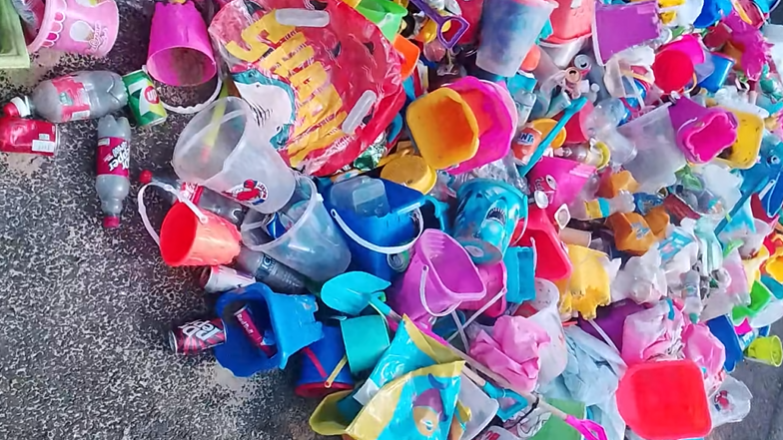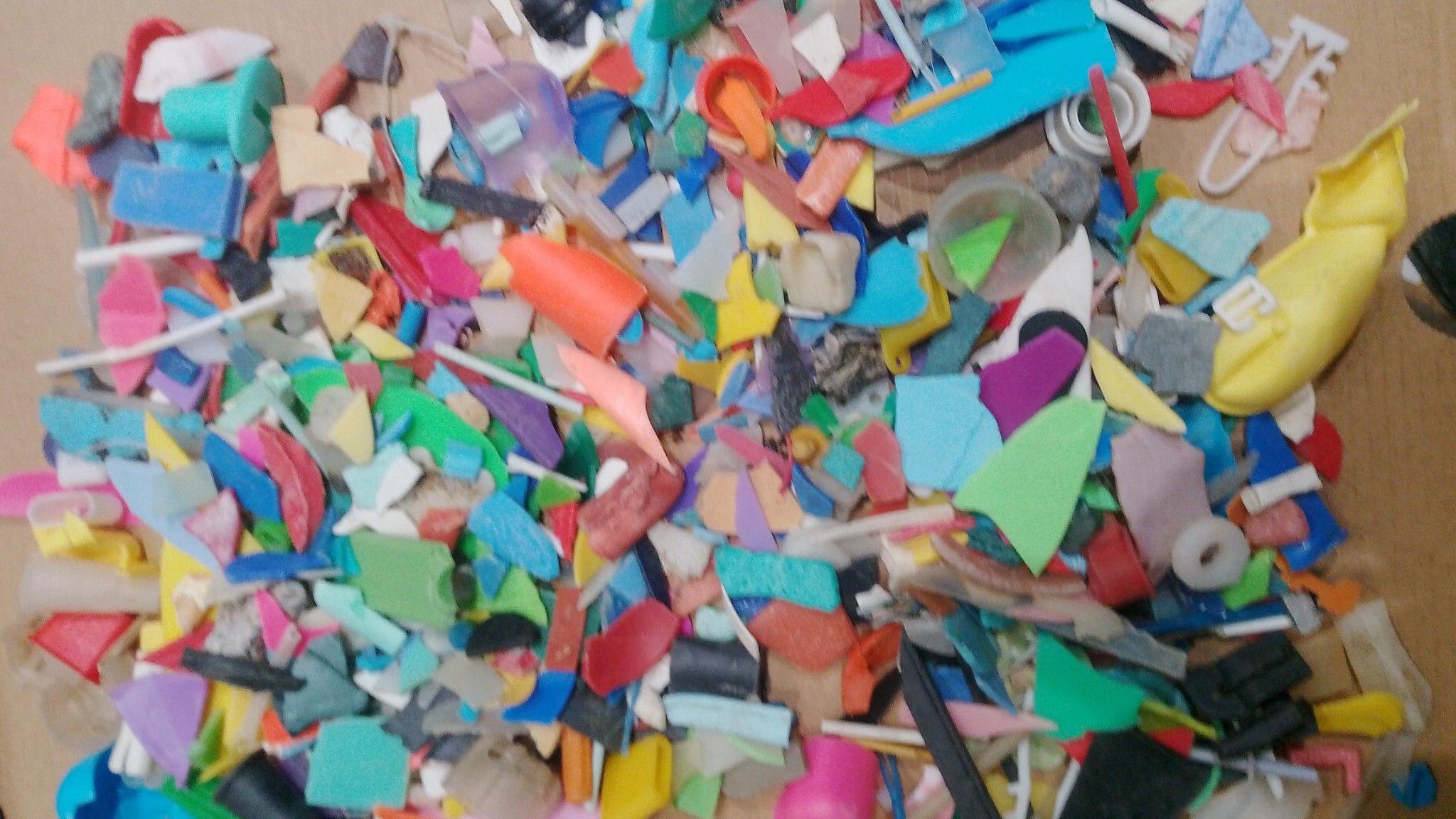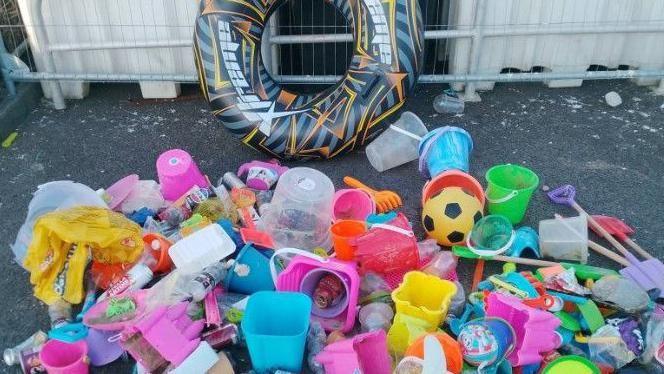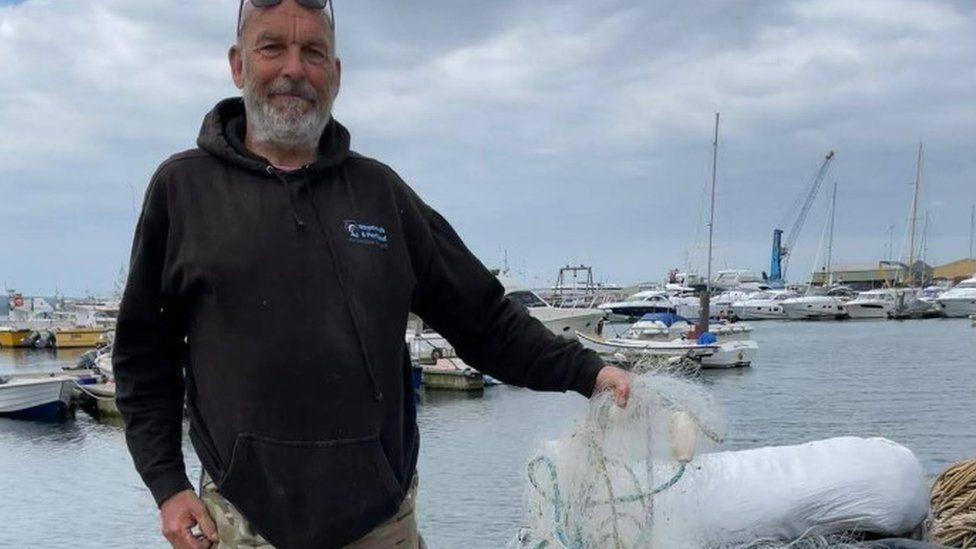Beach clean tool 'causes microplastics' say volunteers

Volunteers collect rubbish dumped by tourists to stop it getting into the sea
- Published
An environmental group has called on a council to rethink the way it cleans a popular tourist beach.
Weymouth and Portland Marine Litter Project claims Weymouth Town Council's beach rake breaks up much of the rubbish left on the beach instead of picking it up.
It says buckets and spades, dumped by tourists, are often crushed by the machinery and are a likely source of microplastics.
The council said its beach cleaning machine was not responsible for microplastics and it had just agreed to spend £71,000 on a new one.
Volunteers for the marine litter project carry out regular beach cleans in the evenings, recycling rubbish and saving undamaged beach toys, before the council rakes the sand in the mornings.
Co-founder Dave Taylor said: "One of the main issues is the tractor goes before the rake, so anything on the beach gets compressed by the tractor."
He claimed the mechanism of the beach rake also caused larger items such as buckets to "shatter".
"Since the holidays we have been finding literally hundreds of small particles of bits of beach toys," he said.

Dave Taylor said some of the plastic could be identified as pieces of buckets and spades
A Weymouth Town Council spokesperson said: "Daily raking has taken place for more than 30 years, and with thousands of visitors throughout the summer, as well as events all year round, it is vital that the beach is kept clean and safe for residents, visitors and wildlife.
"Microplastics aren't made or dropped by beach-cleaning machines.
"Special nurdle-cleaning machines can still be useful after a spill or for focused clean-ups, but they aren't a practical replacement for the equipment used to maintain the beach every day."
The council said it had taken steps to reduce microplastics and general waste, including the introduction of a water refill station, and a toy library to reduce the demand for new buckets and spades.
Rick Stafford, Professor of Environmental Policy at Bournemouth University, said the broken down particles were "more likely from waste which is washed up on to the beach from the sea".
He said: "These rakes are quite heavy... they probably are breaking it down into smaller pieces over a considerable amount of time but the rakes are also picking up quite a lot of plastic from the beach, from what I've seen, so they are also preventing some of that plastic moving out to sea."
What are microplastics?
According to the United Nations' Environment Programme, microplastics are any fragment of plastic that is between one nanometer and five millimetres wide.
One nanometre is just a fraction of the width of a human hair, and 5 millimetres is about the width of a wedding band.
Most microplastics are caused by larger items, such as clothes or packaging, gradually being worn down into smaller pieces.
Primary microplastics are things that are designed to be small - such as microbeads in some face washes.
Get in touch
Do you have a story BBC Dorset should cover?
- Published27 September

- Published21 July 2024
